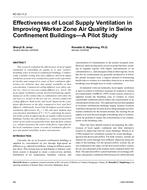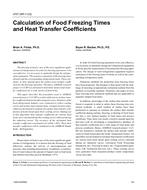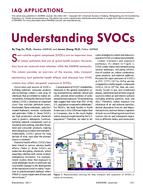The objectives of this paper are to determine if an energy wheel can improve indoor air relative humidity (RH) and perceived air quality (PAQ), as well as reduce energy consumption. The TRNSYS computer package is used to model an office building in four North American cities (Saskatoon, Saskatchewan; Vancouver, British Columbia; Tampa, Florida; and Phoenix, Arizona). The results with and without an energy wheel are compared to see if the energy wheel has a significant impact on the RH and PAQ in the building. The energy wheel significantly reduces peak RH levels in Tampa and Phoenix and has a smaller effect in Saskatoon. The energy wheel reduces the number of people that are dissatisfied with the PAQ within the space in these cities. By using an energy wheel, the total energy consumed by the HVAC system in Saskatoon, Phoenix, and Tampa is reduced. There is a significant reduction in the size of the heating equipment in Saskatoon and in the size of the cooling equipment in Phoenix and Tampa. A cost analysis shows that the HVAC system including an energy wheel has the least life-cycle costs in these three cities. In Vancouver, the energy wheel has a negligible impact on the indoor RH, PAQ, energy consumption, and life-cycle cost.
Units: Dual
Citation: ASHRAE Transactions, vol. 113, pt. 2
Product Details
- Published:
- 2007
- Number of Pages:
- 13
- File Size:
- 1 file , 2.3 MB
- Product Code(s):
- D-LB-07-046


